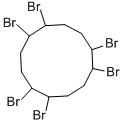2-Octyl-1-dodecanol
Synonym(s):2-Octyl-1-dodecanol;Octyldodecanol
- CAS NO.:5333-42-6
- Empirical Formula: C20H42O
- Molecular Weight: 298.55
- MDL number: MFCD01310428
- EINECS: 226-242-9
- SAFETY DATA SHEET (SDS)
- Update Date: 2024-12-18 14:08:52

What is 2-Octyl-1-dodecanol?
Chemical properties
2-Octyl-1-dodecanol is clear, colourless or yellowish, oily liquid.
Chemical properties
Octyldodecanol occurs as a clear, colorless, or yellowish, oily liquid.
The Uses of 2-Octyl-1-dodecanol
2-Octyl-1-dodecanol have been used as a emulsion stabilizer for polymer matrix patches.
The Uses of 2-Octyl-1-dodecanol
2-Octyldodecane-1-ol have been used as a emulsion stabilizer for polymer matrix patches.
The Uses of 2-Octyl-1-dodecanol
2-Octyl-1-dodecanol may be used to investigate its interaction with the hexameric capsules of resorcin[4]arene. It has been used as diluent in a extractant screening study for the recovery of putrescine (butylene-1,4-diamine, BDA) and cadaverine (pentylene-1,5-diamine, PDA) from aqueous solutions (fermentation broths) by liquid-liquid extraction.
What are the applications of Application
2-Octyl-1-dodecanol is used as a emulsion stabilizer for polymer matrix patches.
Production Methods
2-Octyl-1-dodecanol is produced by the condensation of two molecules of decyl alcohol. It also occurs naturally in small quantities in plants.
General Description
Pharmaceutical secondary standards for application in quality control, provide pharma laboratories and manufacturers with a convenient and cost-effective alternative to the preparation of in-house working standards.
Pharmaceutical Applications
Octyldodecanol is widely used in cosmetics and pharmaceutical
applications as an emulsifying and opacifying agent. It is primarily
used in topical applications because of its lubricating and emollient
properties.
Octyldodecanol has been used in the preparation of oil/water
microemulsions investigated as the vehicle for the dermal administration
of drugs having no or low skin penetration.Octyldodecanol
has also been evaluated as a solvent for naproxen when
applied topically.Studies of estimated permeability coefficient
suggest that octyldodecanol could be a potential dermal permeation
enhancer.
Safety Profile
An eye and severe skin irritant.When heated to decomposition it emits acrid smoke andirritating vapors.
Safety
Octyldodecanol is widely used in cosmetics and topical pharmaceutical
formulations, and is generally regarded as nontoxic and
nonirritant at the levels employed as an excipient.
In acute oral toxicity studies in rats fed 5 g/kg of undiluted
octyldodecanol, no deaths were observed.In an acute dermal
toxicity study, intact and abraded skin sites of guinea pigs were
treated with 3 g/kg of undiluted octyldodecanol under occlusive
patches; no deaths occurred and no gross skin lesions were
observed.Octyldodecanol caused either no ocular irritation or
minimal, transient irritation in the eyes of rabbits.However, some
sources describe undiluted octyldodecanol as an eye and severe skin
irritant.
storage
The bulk material should be stored in a well-closed container in a cool, dry place, protected from light. In the original unopened container, octyldodecanol can be stored for 2 years protected from moisture at below 30°C.
Incompatibilities
2-Octyl-1-dodecanol is generally compatible with most materials encountered in cosmetic and pharmaceutical formulations.
Regulatory Status
Included in the FDA Inactive Ingredients Database (topical, transdermal, and vaginal preparations). Included in nonparenteral medicines licensed in the UK. Included in the Canadian List of Acceptable Non-medicinal Ingredients.
Properties of 2-Octyl-1-dodecanol
| Melting point: | −1-1 °C(lit.) |
| Boiling point: | 234-238 °C/33 mmHg(lit.) |
| Density | 0.838 g/mL at 25 °C(lit.) |
| vapor pressure | 0.1Pa at 148.85℃ |
| refractive index | n20/D 1.453(lit.) |
| Flash point: | 113 °C |
| storage temp. | 2-8°C |
| solubility | Practically insoluble in water, miscible with ethanol (96 per cent). |
| form | neat |
| pka | 15.03±0.10(Predicted) |
| color | Colourless |
| Water Solubility | 10μg/L at 23℃ |
| EPA Substance Registry System | 2-Octyldodecanol (5333-42-6) |
Safety information for 2-Octyl-1-dodecanol
Computed Descriptors for 2-Octyl-1-dodecanol
| InChIKey | LEACJMVNYZDSKR-UHFFFAOYSA-N |
2-Octyl-1-dodecanol manufacturer
TRUUCHEM TECHNOLOGIES PRIVATE LIMITED
New Products
(S)-3-Aminobutanenitrile hydrochloride 4-Methylphenylacetic acid N-Boc-D-alaninol N-BOC-D/L-ALANINOL Tert-butyl bis(2-chloroethyl)carbamate N-octanoyl benzotriazole 3-Morpholino-1-(4-nitrophenyl)-5,6-dihydropyridin- 2(1H)-one Furan-2,5-Dicarboxylic Acid S-2-CHLORO PROPIONIC ACID ETHYL ISOCYANOACETATE 2-Bromo-1,3-Bis(Dimethylamino)Trimethinium Hexafluorophosphate 4-IODO BENZOIC ACID 3-NITRO-2-METHYL ANILINE 1-(2,4-DICHLOROPHENYL) ETHANAMINE (2-Hydroxyphenyl)acetonitrile 4-Bromopyrazole 5,6-Dimethoxyindanone 2-(Cyanocyclohexyl)acetic acid 4-methoxy-3,5-dinitropyridine 1-(4-(aminomethyl)benzyl)urea hydrochloride 2-aminopropyl benzoate hydrochloride diethyl 2-(2-((tertbutoxycarbonyl)amino) ethyl)malonate tert-butyl 4- (ureidomethyl)benzylcarbamate Ethyl-2-chloro((4-methoxyphenyl)hydrazono)acetateRelated products of tetrahydrofuran








You may like
-
 2-n-Octyl-1-dodecanol CAS 5333-42-6View Details
2-n-Octyl-1-dodecanol CAS 5333-42-6View Details
5333-42-6 -
 2-Octyl-1-dodecanol CAS 5333-42-6View Details
2-Octyl-1-dodecanol CAS 5333-42-6View Details
5333-42-6 -
 Octyldodecanol CAS 5333-42-6View Details
Octyldodecanol CAS 5333-42-6View Details
5333-42-6 -
 Octyldodecanol CAS 5333-42-6View Details
Octyldodecanol CAS 5333-42-6View Details
5333-42-6 -
 Octyldodecanol CAS 5333-42-6View Details
Octyldodecanol CAS 5333-42-6View Details
5333-42-6 -
 5333-42-6 2-Octyl-1-dodecanol 99%View Details
5333-42-6 2-Octyl-1-dodecanol 99%View Details
5333-42-6 -
 5333-42-6 Octyldodecanol 99%View Details
5333-42-6 Octyldodecanol 99%View Details
5333-42-6 -
 118753-70-1 98+View Details
118753-70-1 98+View Details
118753-70-1